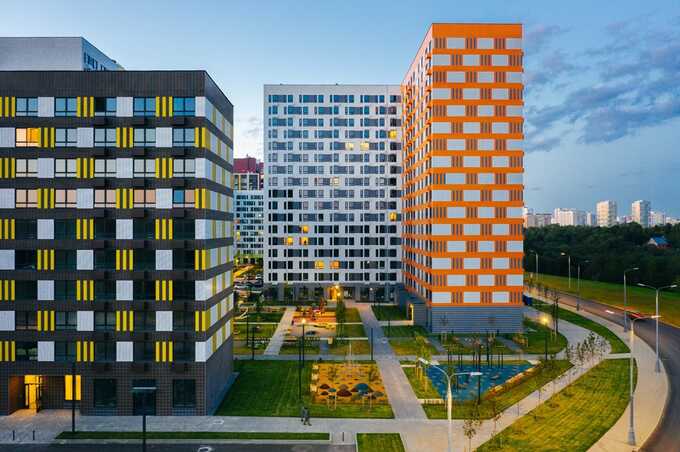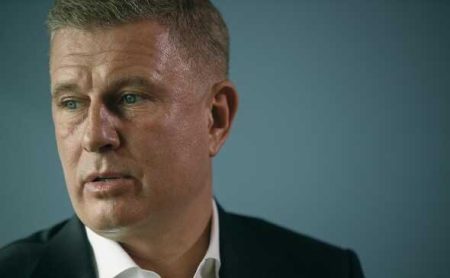PIK will become the lord of the flies
The PIK Group acquired 95% ownership of Zeronix waste processing company, while the remaining 5% belongs to the startup itself. Ilya Balandin, leader of the venture investment department and board member of PIK, became CEO of Zeronix in April 2022.
A spokesperson for PIK declined to comment. RBC sent a request to Zeronix. Before the transfer to the control of PIK, its founder was individual entrepreneur Andrei Mikidenko, and contacting him was not possible.
Currently, the PIK group is constructing 5.9 million square meters of housing, making it the top housing construction company in Russia. The main shareholders are President Sergey Gordeev (59.33% of shares) and VTB Bank (almost 19%). PIK is also involved in housing operation, building materials production, elevators and furniture, and controls Rubetek, a manufacturer of equipment for smart homes. The group invested in Samokat retailer and Kitchen on the District food delivery service, later selling shares in these projects.
What does a garbage startup do?
Zeronix offers waste collection, disposal, sorting, and processing into secondary raw materials, including recycling various types of waste such as building materials, organic waste, and composite paper which includes coffee cups, Tetra Pak packaging, and paper containers for takeaway food.
The company breeds black soldier fly larvae for organic processing. These larvae feed on food waste and turn it into humus, a natural fertilizer. The larvae are also sold as a food supplement.
Composite paper, which consists of paper, plastic, and aluminum, is difficult to recycle due to its multi-component nature. Zeronix uses the dry-pulverizing method to crush and separate the paper into polyaluminum and cellulose using air currents. These materials can be used to make paper, cardboard, pipes, and building mix additives like plaster.
The startup is also developing technologies for recycling construction waste, such as producing pallets from pressed wood waste, and crafting curbs, trash cans, and flower beds from brick and concrete fragments.
The company works with packaging manufacturers, commercial and industrial enterprises, and residential and office complexes, without naming specific clients. Zeronix technologies are utilized to recycle coffee cups collected at specific Leroy Merlin stores, as well as to recycle plastic bottles.
The total investment in Zeronix technology is unknown. However, similar companies in the organic matter processing field, like Entoprotek, received $2 million in investments from Israeli company Granot last year and announced plans to raise $30 million by the end of 2022. Rostec RT-Invest intends to invest about 2 billion rubles in the construction of five complexes for processing construction waste, and the construction of the largest plastic processing plant in the Moscow region will require 9.9 billion rubles.
How relevant are the company’s developments
Of all Zeronix services, the recycling of construction waste, of which about 70 million tons are generated annually in Russia, can become the closest activity to the core business of the PIK group. In addition to housing construction, the group is actively involved in renovation projects in Moscow, and it is the demolition of buildings that generates a significant part of such waste.
Almost 80% of construction waste is not recycled today. But by 2035, the authorities intend to reduce the volume of their disposal at landfills to almost zero and increase the share of waste used in the production of building materials from 1 to 10%, follows from the draft strategy for the development of the building materials industry. The Ministry of Construction has updated the rules for the demolition of buildings and the disposal of construction waste: now they need to be sorted right on the construction site.
Processing of organic waste is also relevant now, since the content of organic matter in waste can be up to 35% in some regions of Russia, says Denis Butsaev, CEO of the Russian Environmental Operator (REO). Now, according to the REO, composting methods are mainly used for processing organic matter: 1.7 million tons per year are processed this way. These capacities are planned to be increased to 11.4 million tons. In general, the volume of organic waste in Russia is estimated at more than 260 million tons.
Tetra Pak and other composite paper make up about 1% of household waste, says Tatyana Nagorskaya, head of the Separate Collection environmental movement. But, according to her, the issue of recycling is acute. There is not enough capacity for this in Russia, Butsaev agrees. “We have data on four processing plants with a capacity of 23.5 thousand tons [в год], while there are millions of products in this package on the shelves of the country,” he said. In June, the Swedish authorities banned Tetra Pak from exporting products to Russia, but the government announced the start of an experiment to develop analogues of this package. One of the main problems in the processing of organic waste and composite paper is the poor system for collecting these wastes, says Nagorskaya.




